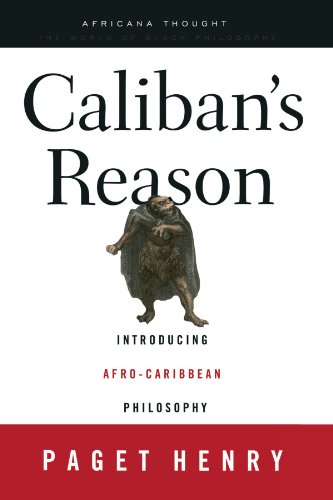Rhizomes, 30: Quantum Possibilities: The Work of Karen Barad (2016)
Filed under journal | Tags: · epistemology, feminism, knowledge production, materialism, ontology, philosophy, physics, quantum physics, queer, science
“In the past decade, Karen Barad’s oeuvre, especially the voluminous Meeting the Universe Halfway (2007), has attracted increasingly great attention in feminist philosophy, cultural studies and feminist science studies. Alongside scholars like Elizabeth Wilson and Vicki Kirby, she has spearheaded the recent feminist exploration of complex scientific issues, and presented new less categorical ways of thinking ontology and epistemology (or indeed onto-epistemology as she refers to it) as a result. Many of the terms introduced and developed by Barad, such as ‘intra-action’, ‘diffraction’ and ‘agential realism’ have shifted the standard metrics of knowledge production and her theories have inspired animated discussion in emerging critical strands as varied as the new materialism in feminism, object oriented ontology, post- and transhumanism, speculative realism, environmental and digital humanities, among others. In a critical climate that is becoming increasingly ‘Baradian’, this special issue on the ‘Quantum Possibilities’ of Barad’s work does not merely aim to reflect the engagements currently being made within these fields, but extends Barad’s ethos of continually rethinking our critical concepts and methodologies ‘without taking these distinctions to be foundational or holding them in place’. Creating ‘diffractive’, or new ‘quantum level’ means of reflecting on, and engaging with Barad’s work, the essays collected here stake out a new set of directions for their wide array of disciplinary identities.”
With essays by Joseph Rouse, Evelien Geerts and Iris van der Tuin, Rebekah Sheldon, Kathrin Thiele, Hanna Meißner, Andie Elizabeth Shabbar, Ulf Mellström, Martin Savransky, Dorothea Olkowski, Graham Harman, Levi R. Bryant, Rick Dolphijn, Katie King, Ino Mamic, and Myra J. Hird.
Edited by Karin Sellberg & Peta Hinton
Published 12 July 2016
Open access
ISSN 1555-9998
Paget Henry: Caliban’s Reason: Introducing Afro-Caribbean Philosophy (2000)
Filed under book | Tags: · africa, caribbean, colonialism, consciousness, epistemology, existentialism, historicism, history of philosophy, knowledge, marxism, ontology, philosophy, poeticism, poststructuralism

“Caliban’s Reason introduces the general reader to Afro-Caribbean philosophy.
In this ground-breaking work, Paget Henry traces the roots of this discourse in traditional African thought and in the Christian and Enlightenment traditions of Western Europe. Since Afro-Caribbean thought is inherently hybrid in nature and marked by strong competition between its European and African orientations, Henry highlights its four main influences–traditional African philosophy, the Afro-Christian school, Poeticism and Historicism–as his organizing principle for discussion.
Offering a critical assessment of such writers as Wilson Harris, Derek Walcott, Edward Blyden, C.L.R. James and George Padmore, Caliban’s Reason renders a much-needed portrait of Afro-Caribbean philosophy and fills a significant gap in the field.”
Publisher Routledge, 2000
Africana Thought series
ISBN 0415926459, 9780415926454
xiii+304 pages
Reviews: H. Adlai Murdoch (SubStance, 2002), Claudette Anderson (Small Axe, 2002), Charles Mills (Phil Review, 2003), Clevis Headley (Int’l J of African Hist Studies, 2003), Leslie R. James (North Star, 2004).
Interview with author (Linda Martín Alcoff, 2003)
Comment (0)Bernhard Siegert: Cultural Techniques: Grids, Filters, Doors, and Other Articulations of the Real (2015)
Filed under book | Tags: · art, cartography, cultural techniques, cybernetics, information, information theory, machine, media, media theory, ontology, painting, perspective, representation, technology

“In a crucial shift within posthumanistic media studies, Bernhard Siegert dissolves the concept of media into a network of operations that reproduce, displace, process, and reflect the distinctions fundamental for a given culture. Cultural Techniques aims to forget our traditional understanding of media so as to redefine the concept through something more fundamental than the empiricist study of a medium’s individual or collective uses or of its cultural semantics or aesthetics. Rather, Siegert seeks to relocate media and culture on a level where the distinctions between object and performance, matter and form, human and nonhuman, sign and channel, the symbolic and the real are still in the process of becoming. The result is to turn ontology into a domain of all that is meant in German by the word Kultur.
Cultural techniques comprise not only self-referential symbolic practices like reading, writing, counting, or image-making. The analysis of artifacts as cultural techniques emphasizes their ontological status as “in-betweens,” shifting from first-order to second-order techniques, from the technical to the artistic, from object to sign, from the natural to the cultural, from the operational to the representational.
Cultural Techniques ranges from seafaring, drafting, and eating to the production of the sign-signal distinction in old and new media, to the reproduction of anthropological difference, to the study of trompe-l’oeils, grids, registers, and doors. Throughout, Siegert addresses fundamental questions of how ontological distinctions can be replaced by chains of operations that process those alleged ontological distinctions within the ontic.
Grounding posthumanist theory both historically and technically, this book opens up a crucial dialogue between new German media theory and American postcybernetic discourses.”
Translated by Geoffrey Winthrop-Young
Publisher Fordham University Press, New York, 2015
Meaning Systems series
ISBN 0823263762, 9780823263769
xiv+265 pages
Reviews: Geoghegan (Paragraph, 2014), Young (New Media & Society, 2015).
Commentary: Martin (Grey Room, 2016).
PDF (8 MB, updated on 2020-1-1)
Comments (4)
